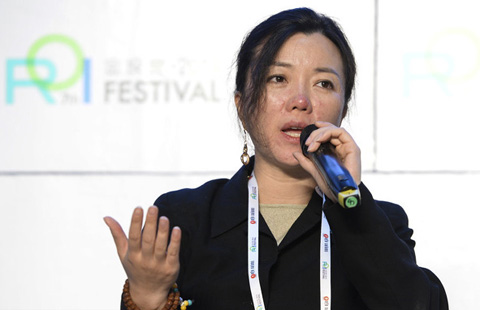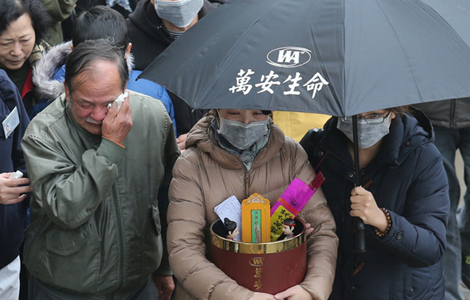Beijing district to ease residency permits for migrants
Updated: 2015-02-07 21:17
(Xinhua)
|
||||||||
BEIJING - Beijing will pilot a "point system" in east suburban district of Tongzhou to allow its migrants to claim permanent resident permits or "hukou".
The system was included in the comprehensive pilot plan for promoting new-type urbanization released Wednesday by the National Development and Reform Commission (NDRC), China's top economic planner.
According to the district government of Tongzhou, it will adopt a "point system" for migrant people in the district based on various criteria including stable employment, accommodation, social security, and duration of residency, etc..
Migrants can transform their household registration status to local residents after reaching a required amount of points. The authorities have yet to disclose more details.
Beijing's permanent population exceeded 20 million, about 2.6 times that of London and 2.5 times more than New York. As a megacity, Beijing is challenged by a complex mixture of "urban diseases", such as air pollution and congestion.
Owing to limited resources, people with Beijing "hukou" enjoy better educational opportunities, employment support, care for senior citizens and social welfare.
Previously, migrant citizens could only apply for temporary residential permits, with none of the rights or benefits enjoyed by permanent residents.
Similar point-based residency permit systems have already been put into use in cities like Shanghai, Guangzhou and Tianjin.
In Guangzhou, applicants' educational background, skill level and social security records are converted into points. Each year, nearly 3,000 migrants can obtain "hukou" in the city.
Beijing has a strict system of household registration. More than eight million migrants lived and worked in the capital last year. The new system allows them to see the chance of becoming a real part of the city.
A migrant surnamed Zhang, who has worked for nearly ten years at an investment company in Beijing, said the new system seems to be more equal and transparent.
"Beijing needs to control population growth and meet demands of migrants to obtain 'hukou' at the same time. Once the pilot program turns out to be successful, it can set a good example to other places," said Niu Fengrui, a researcher with the Institute for Urban and Environmental Studies under the Chinese Academy of Social Sciences.
Beijing can control its population growth by transferring some of the capital's functions to neighboring regions rather than by adopting stricter household registration system, said Yi Peng, a researcher of PanGoal, a public policy research Institution.

 Across America over the week (from Jan 29 to Feb 5)
Across America over the week (from Jan 29 to Feb 5)
 Bringing Hollywood into your home
Bringing Hollywood into your home
 Snow turns village in Xinjiang into a fairy world
Snow turns village in Xinjiang into a fairy world
 Global firms that changed top execs after China biz hurdle
Global firms that changed top execs after China biz hurdle
 65th Berlinale International Film Festival opens
65th Berlinale International Film Festival opens
 Young TV producer crowned Queen of Amazon tribe
Young TV producer crowned Queen of Amazon tribe
 Family members mourn air crash victims
Family members mourn air crash victims
 Australian journalist Peter Greste arrives home
Australian journalist Peter Greste arrives home
Most Viewed
Editor's Picks

|

|

|

|

|

|
Today's Top News
Rice: US invites Xi for state visit
US invites Chinese President for state visit
US issues unemployment figures for Asian-Americans
Chinese Americans growing as spenders
Tax, tech rules 'test' US-China relations
Train-makers set for sales boost abroad
China's view of social media dims: report
Yum and McDonald's profits drop after supplier scandal
US Weekly

|

|